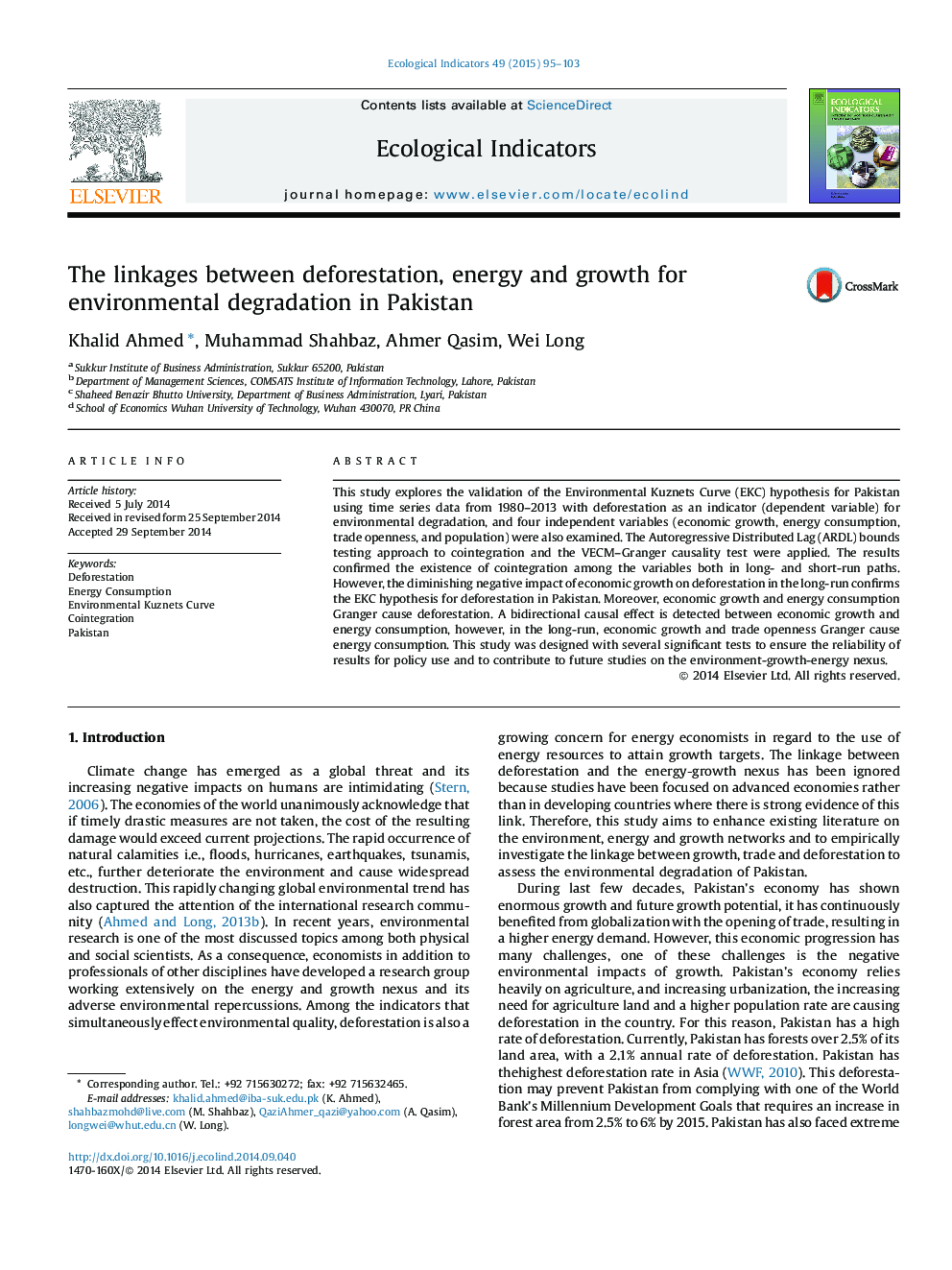| Article ID | Journal | Published Year | Pages | File Type |
|---|---|---|---|---|
| 6294791 | Ecological Indicators | 2015 | 9 Pages |
This study explores the validation of the Environmental Kuznets Curve (EKC) hypothesis for Pakistan using time series data from 1980-2013 with deforestation as an indicator (dependent variable) for environmental degradation, and four independent variables (economic growth, energy consumption, trade openness, and population) were also examined. The Autoregressive Distributed Lag (ARDL) bounds testing approach to cointegration and the VECM-Granger causality test were applied. The results confirmed the existence of cointegration among the variables both in long- and short-run paths. However, the diminishing negative impact of economic growth on deforestation in the long-run confirms the EKC hypothesis for deforestation in Pakistan. Moreover, economic growth and energy consumption Granger cause deforestation. A bidirectional causal effect is detected between economic growth and energy consumption, however, in the long-run, economic growth and trade openness Granger cause energy consumption. This study was designed with several significant tests to ensure the reliability of results for policy use and to contribute to future studies on the environment-growth-energy nexus.
